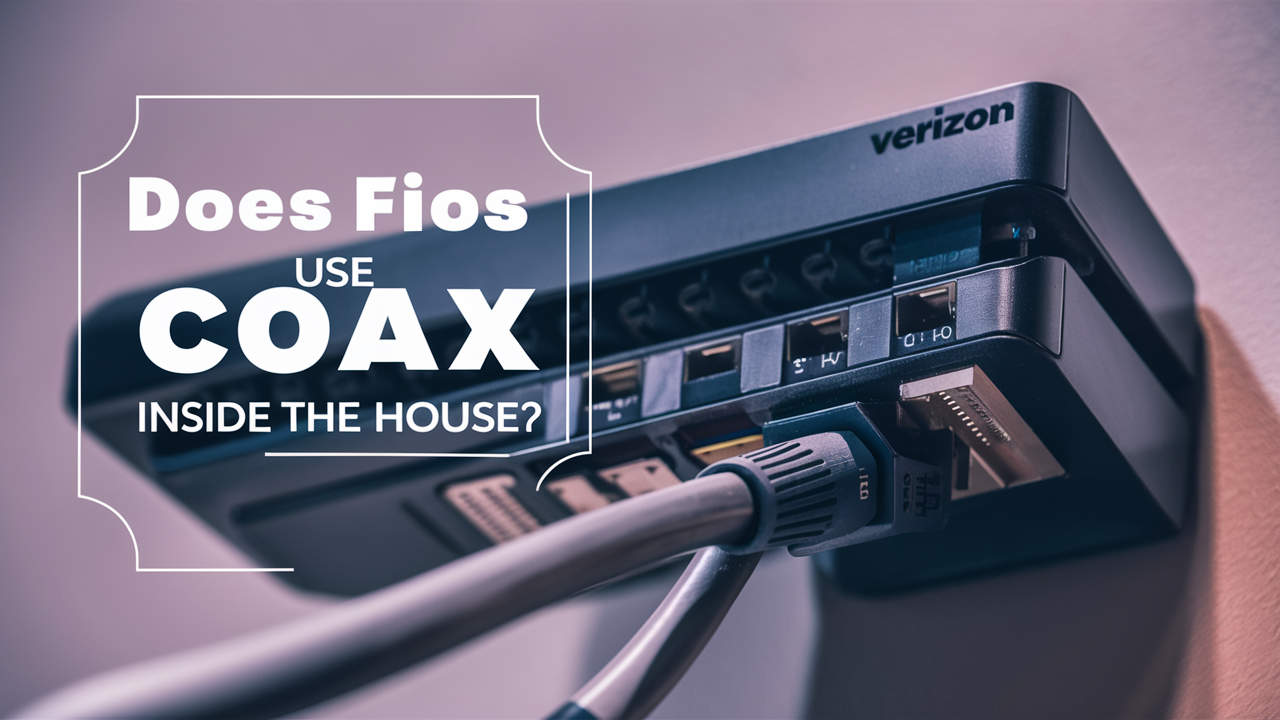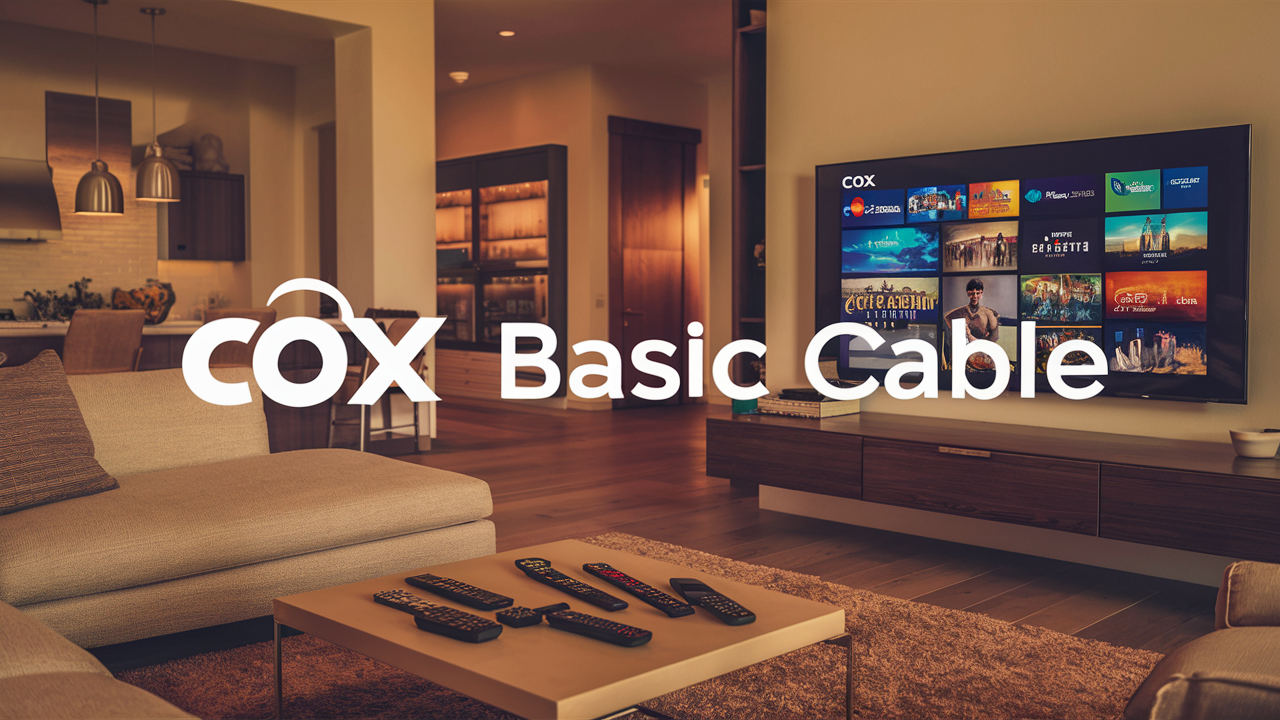Does Cox Internet Include Router?

Navigating internet plans can be complex, especially when it comes to equipment. Many users wonder, "Does Cox Internet include a router?" The answer is often yes, but with important nuances regarding rental fees, ownership, and performance. This guide clarifies Cox's router policies.
Understanding Cox's Router Policy
When you sign up for Cox Internet service, a common question that arises is whether a router is included. The straightforward answer is that Cox does not automatically include a router for free with every internet plan. Instead, they offer options: you can rent a modem-router combo device (often called a Gateway) from them, or you can purchase and use your own compatible equipment. This flexibility allows customers to choose the path that best suits their budget and technical needs. Understanding these options is crucial for making an informed decision about your home network setup.
Cox Internet Plans and Equipment Options
Cox offers a range of internet plans designed to meet different household needs, from basic browsing to high-demand streaming and gaming. The equipment associated with these plans typically falls into two categories: renting from Cox or providing your own. Each has distinct advantages and disadvantages that potential customers should carefully consider.
Renting a Cox-Provided Router
Cox provides a modem-router combination device, often referred to as a "Gateway." When you opt to rent this equipment, Cox typically handles the installation and ensures compatibility with their network. This is often the default choice for many customers, especially those who prefer a hassle-free setup and ongoing support. The rental fee is usually a recurring monthly charge added to your Cox bill.
The specific model of the Gateway you receive can vary depending on your location and the internet plan you choose. Newer, higher-tier plans might come with more advanced Gateways that support faster speeds and Wi-Fi 6 technology. It's important to ask Cox what specific model you'll be receiving and its capabilities before committing to a rental agreement. While convenient, this option incurs ongoing costs.
Bringing Your Own Router
Alternatively, Cox allows customers to use their own compatible modem and router, or a combined modem-router unit. This approach requires you to purchase the equipment upfront. To ensure compatibility, Cox maintains a list of approved modems. If you choose to use your own router, you'll need to make sure it meets the necessary specifications for the internet speed tier you've selected. This can offer long-term cost savings and greater control over your network's performance and features.
When using your own equipment, you are responsible for its setup, maintenance, and troubleshooting. However, the freedom to choose a high-performance router that perfectly matches your home's size and your specific needs can be a significant advantage. Many users opt for this route to avoid monthly rental fees and to leverage advanced features not always found in ISP-provided equipment.
Cox Gateway vs. Modem-Router Combo
It's important to clarify terminology. Cox often uses the term "Gateway" to refer to their all-in-one device that combines a modem (which connects to Cox's network) and a router (which creates your Wi-Fi network). When you rent from Cox, you're typically renting one of these Gateways. If you bring your own equipment, you might have a separate modem and a separate router, or you might have a purchased modem-router combo unit. The key is that both functions—connecting to the internet service provider and broadcasting Wi-Fi—must be present.
The Cox Gateway is designed to work seamlessly with their network, and Cox provides support for it. However, it may not always offer the latest Wi-Fi technology or the most robust features compared to high-end consumer routers. For example, some Gateways might only support older Wi-Fi standards or have limited customization options for network settings.
Cost Analysis: Rental vs. Ownership
Deciding whether to rent a router from Cox or buy your own involves a careful look at the financial implications over time. While renting offers initial simplicity, purchasing your own equipment can lead to significant savings and better performance in the long run.
Calculating Long-Term Rental Costs
Cox's monthly equipment rental fees can add up considerably. As of 2025, typical rental fees for a modem-router combo (Gateway) can range from $10 to $20 per month, depending on the model and your specific plan. Let's do a quick calculation:
- Monthly Fee: $15 (average)
- Annual Cost: $15/month * 12 months = $180/year
- Cost over 3 years: $180/year * 3 years = $540
- Cost over 5 years: $180/year * 5 years = $900
Over several years, these recurring charges can represent a substantial expense. This figure doesn't account for potential price increases in rental fees by Cox. It's essential to check the current rental rates for your area and plan directly with Cox to get the most accurate estimate.
Initial Investment for Your Own Equipment
Purchasing your own modem and router involves an upfront cost. High-quality modems can range from $70 to $150, while advanced routers can cost anywhere from $100 to $300 or more, depending on features like Wi-Fi 6, mesh capabilities, and processing power. A good modem-router combo unit might cost between $150 and $400.
For example, if you purchase a capable modem for $100 and a robust Wi-Fi 6 router for $200, your initial investment is $300. Compared to the $540 to $900+ you might spend on rentals over 3-5 years, buying your own equipment becomes financially advantageous relatively quickly. The break-even point is often within the first 1-2 years of service.
Hidden Fees and Considerations
Beyond the monthly rental fee, there can be other costs associated with Cox equipment. For instance, if you switch plans or move, you might incur activation or installation fees for Cox-provided equipment. When you return rented equipment, there's also the risk of being charged for damage or loss, even if it's due to normal wear and tear.
Conversely, when you own your equipment, you are responsible for its maintenance and replacement if it fails. However, reputable brands often come with warranties, and the long-term cost of replacing a router every 5-7 years is generally less than the cumulative rental fees. It's also crucial to ensure your purchased modem is on Cox's approved device list to avoid connectivity issues.
Benefits of Renting a Cox Router
While the cost of renting a router from Cox is a significant factor, there are several benefits that make it an attractive option for some users, particularly those who prioritize convenience and immediate support.
Technical Support and Troubleshooting
One of the primary advantages of renting a Cox Gateway is the readily available technical support. If you encounter any issues with your internet connection or the Wi-Fi signal, Cox's support team can remotely diagnose and often resolve problems with their provided equipment. They are familiar with their devices and can quickly identify whether the issue lies with the hardware, the service, or your internal network setup.
This direct line of support can save you a lot of time and frustration, especially if you're not particularly tech-savvy. When you own your equipment, you are often the first line of support, and troubleshooting can become a complex process of elimination involving your modem, router, and connection to the ISP.
Guaranteed Compatibility
When you rent a modem or Gateway from Cox, you are guaranteed that the equipment is fully compatible with their network and the internet speed tier you subscribe to. This eliminates the guesswork and potential headaches of trying to find a third-party modem that meets Cox's specific requirements, which can change over time.
Cox ensures that their rented devices are provisioned correctly for your service, meaning they are configured to receive the speeds you're paying for. This can prevent issues where a customer purchases a modem that, while technically capable, isn't fully supported or optimized by the ISP, leading to slower speeds or unreliable performance.
Ease of Setup and Replacement
Cox typically offers easy setup for their rented equipment. Often, it's a plug-and-play process, and if you need assistance, Cox technicians can guide you or schedule an installation. If the rented equipment malfunctions or becomes obsolete, Cox will replace it, usually at no additional cost beyond potential service call fees. This seamless replacement process is a significant convenience.
When you purchase your own equipment, you are responsible for the initial setup, which can sometimes involve contacting Cox to activate your modem. If the equipment fails, you'll need to purchase a replacement yourself, which adds to the overall cost and downtime.
Benefits of Using Your Own Router
The decision to purchase your own router and modem combination (or separate units) for Cox Internet service offers a compelling set of advantages, primarily centered around cost savings, performance, and customization.
Potential Cost Savings
As detailed in the cost analysis section, the most significant benefit of owning your equipment is the long-term financial savings. By avoiding monthly rental fees, which can amount to hundreds of dollars over a few years, you can recoup the initial investment in your own hardware relatively quickly. For example, if rental fees are $15/month, owning equipment that costs $200 means you start saving money after approximately 13-14 months.
This ongoing saving can be redirected towards upgrading your equipment sooner, investing in better network security, or simply reducing your overall monthly internet bill. The freedom from recurring equipment charges is a powerful incentive for many consumers.
Enhanced Performance and Features
Consumer-grade routers and modems, especially those in the mid-to-high price range, often offer superior performance and advanced features compared to ISP-provided Gateways. These can include:
- Faster Wi-Fi Standards: Access to the latest Wi-Fi standards like Wi-Fi 6 (802.11ax) or Wi-Fi 6E, which offer faster speeds, better efficiency, and improved performance in crowded wireless environments.
- Better Signal Strength and Range: Higher-quality antennas and more powerful processors in aftermarket routers can provide a stronger and more consistent Wi-Fi signal throughout your home.
- Advanced QoS (Quality of Service): The ability to prioritize certain types of traffic (e.g., gaming, video conferencing) to ensure a smoother experience.
- More Ethernet Ports: Often, dedicated routers will have more Gigabit Ethernet ports for wired connections than a typical ISP Gateway.
For users with demanding internet needs, such as streaming 4K video, online gaming, or supporting a large number of connected devices, these performance enhancements can make a noticeable difference.
Greater Control and Customization
Owning your router gives you complete control over your home network settings. You can customize network names (SSIDs), passwords, security protocols (like WPA3), firewall settings, and guest network configurations. This level of control is often limited or entirely absent with ISP-provided equipment, where options are locked down for simplicity and security.
Advanced users can fine-tune their network for optimal performance, set up VPNs directly on the router, implement parental controls, and manage connected devices more granularly. This customization is invaluable for users who want to tailor their network to their specific lifestyle and security preferences.
Choosing the Right Router for Your Needs
Selecting your own router and modem requires understanding what to look for. The "best" router is subjective and depends on your specific internet plan, home size, and usage habits. Here’s a breakdown of key factors to consider in 2025.
Understanding Router Specifications
When looking at routers, you'll encounter various specifications. Key ones include the Wi-Fi standard (e.g., Wi-Fi 5, Wi-Fi 6, Wi-Fi 6E), the maximum theoretical speeds (e.g., AX1800, AC3200), the number of antennas, processor speed, and RAM. For Cox Internet, ensure your modem is DOCSIS 3.0 or 3.1 compatible and approved by Cox. For the router, Wi-Fi 6 is becoming the standard for new purchases, offering better performance than Wi-Fi 5 (802.11ac).
Wi-Fi Standards and Speed
Wi-Fi 5 (802.11ac): Still common, good for most households, but less efficient with many devices.
Wi-Fi 6 (802.11ax): The current standard. Offers higher speeds, better capacity, and improved performance in congested areas. Recommended for most new purchases.
Wi-Fi 6E: An extension of Wi-Fi 6 that adds the 6 GHz band, reducing interference and offering even faster speeds for compatible devices. More expensive and requires compatible client devices.
Speed Ratings (e.g., AX3000): These numbers indicate the combined theoretical speeds across all Wi-Fi bands. For example, an AX3000 router might offer 2402 Mbps on the 5 GHz band and 574 Mbps on the 2.4 GHz band. Ensure the router's speed capabilities match or exceed your Cox Internet plan's download and upload speeds.
Coverage Area and Device Count
Consider the size of your home. A single router might be sufficient for a small apartment, but a larger house or one with multiple floors may require a more powerful router or a mesh Wi-Fi system. Look at routers advertised for specific square footage coverage (e.g., "up to 2,500 sq ft"). Also, think about how many devices will be connected simultaneously. If you have numerous smart home devices, phones, tablets, and computers, choose a router designed for high device density.
Security Features
Network security is paramount. Look for routers that support WPA3 encryption, the latest and most secure Wi-Fi protocol. Other important features include a built-in firewall, automatic firmware updates, and the ability to create guest networks. Some routers offer advanced security suites, often subscription-based, that provide real-time threat detection and malware blocking.
Mesh Wi-Fi Systems
For larger homes or areas with persistent Wi-Fi dead zones, a mesh Wi-Fi system is an excellent solution. These systems consist of a main router and one or more satellite nodes that work together to create a single, seamless Wi-Fi network. Devices automatically connect to the strongest signal as you move around your home, providing consistent coverage. Popular mesh systems include Eero, Google Nest Wifi, and TP-Link Deco.
How to Set Up Your Own Router with Cox
Setting up your own modem and router with Cox Internet is a straightforward process. Follow these steps to get your custom network up and running.
Step 1: Gather Your Equipment
Ensure you have the following:
- A Cox-approved DOCSIS 3.0 or 3.1 modem. Check Cox's official website for the most current list of compatible modems.
- A compatible router (or a modem-router combo unit).
- Coaxial cable to connect the modem to your wall outlet.
- Ethernet cable to connect the modem to your router (if using separate units).
- Your Cox account information (account number, MAC address of your modem).
Step 2: Disconnect Cox Equipment
If you are currently renting a Cox Gateway, unplug it from the power outlet and disconnect all cables. If you have a separate Cox modem, do the same. It's advisable to return rented equipment to Cox to avoid ongoing charges.
Step 3: Connect Your Router
If using a separate modem and router:
- Connect one end of the coaxial cable to the wall outlet and the other end to the modem's coaxial port.
- Connect one end of an Ethernet cable to the modem's Ethernet port and the other end to the WAN/Internet port on your router.
- Plug in the power adapter for the modem and then for the router.
- Connect the coaxial cable to the wall outlet and the modem-router combo's coaxial port.
- Plug in the power adapter for the unit.
Step 4: Configure Your Router
You will need to activate your new modem with Cox. This usually involves:
- Connecting a computer directly to your router via Ethernet cable (or via the router's default Wi-Fi network, often found on a sticker on the router).
- Opening a web browser and navigating to Cox's modem activation portal (usually something like `start.cox.com` or a specific URL provided by Cox).
- Following the on-screen instructions. You will likely need to provide your Cox account information and the MAC address of your new modem.
- Once the modem is activated, you can proceed to configure your router's Wi-Fi settings (SSID, password, etc.) through its web interface or mobile app.
Step 5: Test Your Connection
After configuring your router, connect a device (laptop, smartphone) to your Wi-Fi network. Open a web browser and try to visit a few websites. You can also run a speed test (e.g., Ookla Speedtest) to verify that you are receiving the speeds associated with your Cox Internet plan.
Cox Router Rental Fees in 2025
As of early 2025, Cox continues to charge monthly rental fees for their provided modem-router Gateways. These fees can vary based on the specific model and the internet plan, but generally fall within the range of $10 to $20 per month. For instance, a common Gateway might be priced at approximately $15 per month. It is crucial for potential and current customers to verify the exact rental cost for their specific service area and plan directly with Cox, as these prices are subject to change and can differ geographically.
It's important to note that Cox may offer bundles or promotions that include equipment rental at a reduced rate or even free for a promotional period. However, these offers are typically temporary. For long-term cost-effectiveness, especially if you plan to keep your Cox service for more than a year or two, purchasing your own compatible modem and router often proves to be the more economical choice.
Troubleshooting Common Router Issues with Cox
Whether you rent a Cox Gateway or use your own equipment, you might encounter common internet and Wi-Fi issues. Here’s how to approach them:
Slow Internet Speeds
If renting from Cox: First, reboot your modem and router. If the problem persists, contact Cox support. They can check for network issues in your area or problems with their equipment. Ensure your plan speed is sufficient for your needs.
If using your own equipment: Reboot your modem and router. Check your modem's compatibility and ensure it supports your plan's speeds. Test speeds with a wired connection to rule out Wi-Fi issues. If speeds are still low, check router placement, interference, and consider upgrading your router if it's older.
Intermittent Connectivity
If renting from Cox: This can be caused by faulty wiring, signal interference, or issues with Cox's network. Rebooting is the first step. If it continues, Cox support will need to investigate.
If using your own equipment: Check all cable connections for tightness. Ensure your modem firmware is up to date. If using Wi-Fi, try moving closer to the router. Interference from other electronics or neighboring Wi-Fi networks can cause this. Consider changing your Wi-Fi channel.
Wi-Fi Dead Zones
If renting from Cox: If your Cox Gateway doesn't provide adequate coverage, you might need to purchase a Wi-Fi extender or a mesh system. Cox may offer these as rental add-ons, but purchasing your own is often more cost-effective.
If using your own equipment: Reposition your router to a more central location, away from obstructions and interference. For larger homes, a mesh Wi-Fi system is the most effective solution for eliminating dead zones.
Router Not Connecting
If renting from Cox: Ensure the modem is properly connected and powered on. Check the status lights on the Gateway. If they indicate no internet connection, contact Cox support. They can remotely check the connection status.
If using your own equipment: Verify the modem is activated with Cox. Check that the Ethernet cable between the modem and router is securely plugged into the correct ports (modem's Ethernet to router's WAN/Internet port). Reboot both devices. If using a separate modem, ensure it's on Cox's approved list.
The Future of Internet Equipment with Cox
The landscape of internet service providers and their equipment offerings is constantly evolving. For Cox, the trend is towards higher speeds and more integrated services. We can anticipate that their Gateways will continue to incorporate the latest Wi-Fi standards, such as Wi-Fi 6E and potentially Wi-Fi 7 in the coming years, to support their faster internet tiers. The focus will likely remain on providing a user-friendly, all-in-one solution for the average consumer.
However, the option to use your own equipment is expected to persist. As the cost of advanced consumer networking hardware decreases, more users will opt for personalized setups that offer superior performance and features. ISPs like Cox will likely continue to provide compatibility lists and support for customer-owned modems to remain competitive. The key for consumers will be to stay informed about Cox's approved devices and the evolving Wi-Fi technologies to make the most informed decisions for their home network.
Conclusion
In summary, Cox Internet does not automatically include a router for free. Customers have a choice: rent a modem-router Gateway from Cox for a recurring monthly fee, or purchase their own compatible equipment. While renting offers convenience and readily available technical support, the long-term costs can be substantial. Owning your router and modem, on the other hand, typically leads to significant cost savings over time, provides access to enhanced performance features, and offers greater control over your home network.
For most users looking to optimize their internet experience and save money, investing in a high-quality, Cox-approved modem and a capable router is the recommended path. By carefully considering your internet speed needs, home size, and desired features, you can select equipment that not only meets but exceeds the capabilities of standard ISP-provided devices. Always verify Cox's compatibility lists and current rental fees to make the most informed decision for your specific situation.





